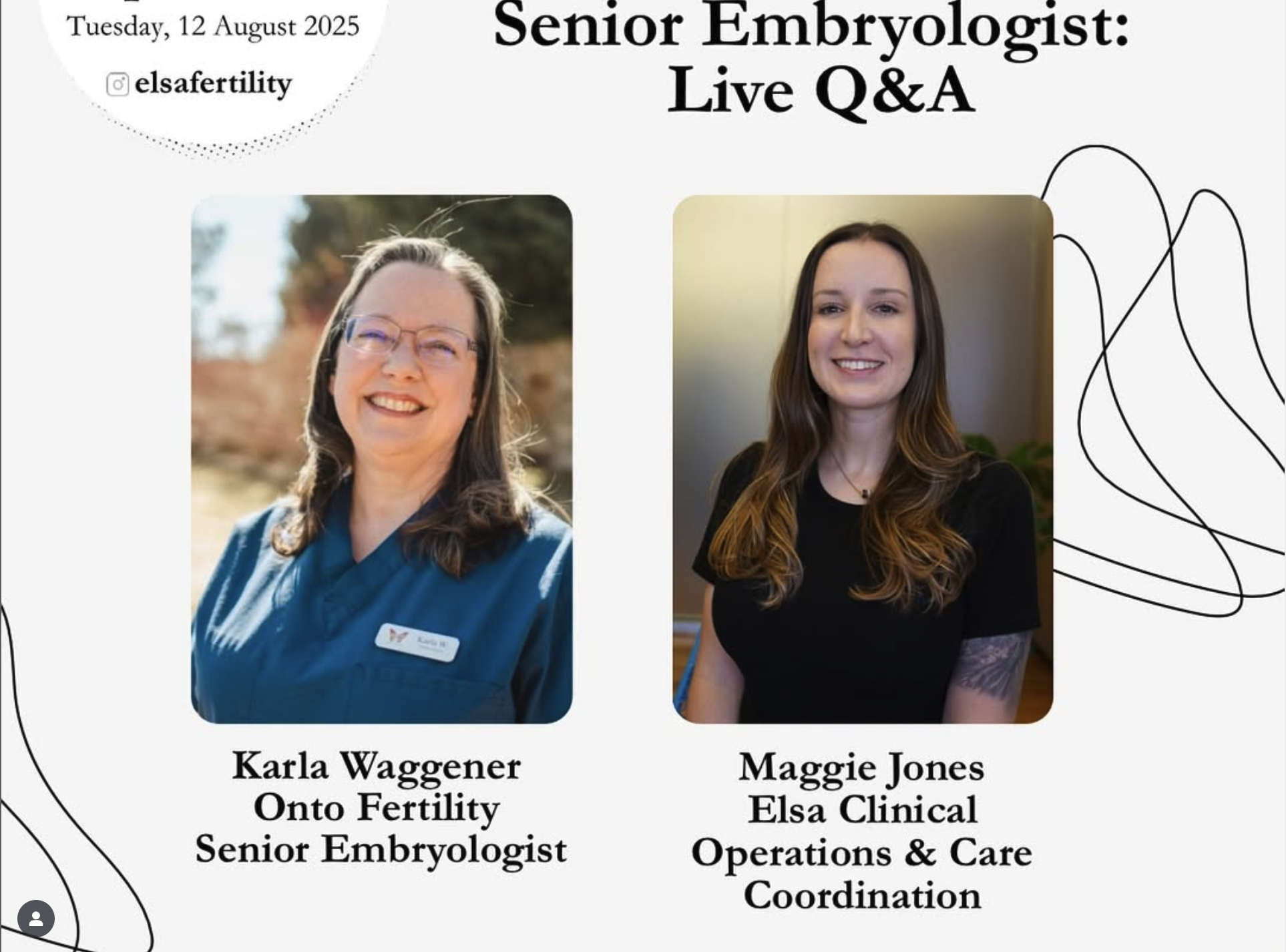Sex and Fertility Treatments: When to Pause Intimacy

If you’re going through IVF or egg freezing, you're likely getting a lot of information—and one of the more confusing topics can be sexual activity. When is it safe to have sex? When should you abstain? Does it matter if you’re doing a transfer or not?
Let’s clear it up with expert guidance from the American College of Obstetricians and Gynecologists (ACOG), the American Society for Reproductive Medicine (ASRM), and the Society for Assisted Reproductive Technology (SART).
Why Does Sexual Activity Matter During IVF?
During an IVF cycle—especially when taking stimulation medications—your ovaries are growing larger and more sensitive. Sexual activity during this time can:
- Increase the risk of ovarian torsion (a twisting of the ovary, which is a medical emergency
- Cause discomfort or cramping
- Raise the risk of multiple pregnancy if unprotected sex occurs (yes, even during stimulation)
- Potentially introduce infection after procedures like egg retrieval or embryo transfer
Because of these risks, timing matters when it comes to intimacy during your cycle.
IVF Timeline & When to Pause Sex
Here’s a breakdown of when to stop—and resume—sexual activity depending on where you are in your IVF or egg freezing journey.
Before Egg Retrieval – During Stimulation Medications
When you begin injectable stimulation meds, your ovaries are actively producing multiple follicles. They're more prone to discomfort and torsion.
When to stop sex:
Most clinics, including those following ASRM guidance, recommend abstaining from vaginal intercourse starting about 5–7 days into stimulation1—or once follicles begin growing larger (usually mid-stimulation).
Why?
Ovarian torsion risk increases as ovaries enlarge. Plus, unprotected sex can lead to unintended fertilization—and even multiple pregnancies during stimulation (yes, it’s rare but possible!)
After Egg Retrieval – No Embryo Transfer
If you're freezing eggs or planning a later embryo transfer (a “freeze-all” cycle), you still need time to heal post-retrieval.
How long to abstain:
7–10 days after egg retrieval is typically advised, or until your care team confirms that ovarian swelling has subsided
Why?
Your ovaries may still be enlarged and tender, and there’s a risk of infection or delayed bleeding after the procedure.
After Embryo Transfer – Fresh or Frozen
Once an embryo is transferred, the focus shifts to creating the most supportive environment for implantation.
How long to abstain:
ASRM and SART recommend abstaining from vaginal intercourse for at least 5–7 days after embryo transfer, and in some cases, until a pregnancy test confirms results (about 10–14 days post-transfer)3.
Why?
- Minimize uterine contractions that could interfere with implantation
- Reduce infection risk, especially if progesterone is being delivered vaginally
- Allow the uterine lining to remain undisturbed
Some fertility clinics may recommend abstinence throughout the two-week wait to support early implantation or even until first heart beat. This timeline should be discussed with your fertility specialist early on in your journey so all of your questions and worries can be addressed.

Final Thoughts from Elsa Fertility
We get it—talking about sex during fertility treatment can feel awkward or confusing. But it's a normal, important part of your overall wellness, and our goal is to make sure you're informed and supported every step of the way.
If you ever have questions about intimacy, recovery, or timing during your cycle, our Elsa Care Coordinators are always here to help clarify.
Want more IVF education and support?
Explore the Elsa Journey or book a call with our team today. Your questions are welcome—and your journey matters. Whether you are ready to begin a comprehensive assessment and meet with a fertility specialist, or are just looking to get a quick fertility assessment to know where you stand, we will support you along your journey and provide you with a dedicated RN coordinator to help answer all your questions as they come up. Not sure where to start? Take our 3 question fertility quiz here.
References:
- ASRM Practice Committee. (2020). Patient Management During IVF. ASRM.org
- ACOG Committee Opinion No. 778. (2019). Post-Procedural Sexual Activity. ACOG.org
- SART (2022). Embryo Transfer Recommendations. SART.org
Articles Recommended for You
Modern, personalized, effortless
Join our mailing list to stay informed with the latest in fertility.




